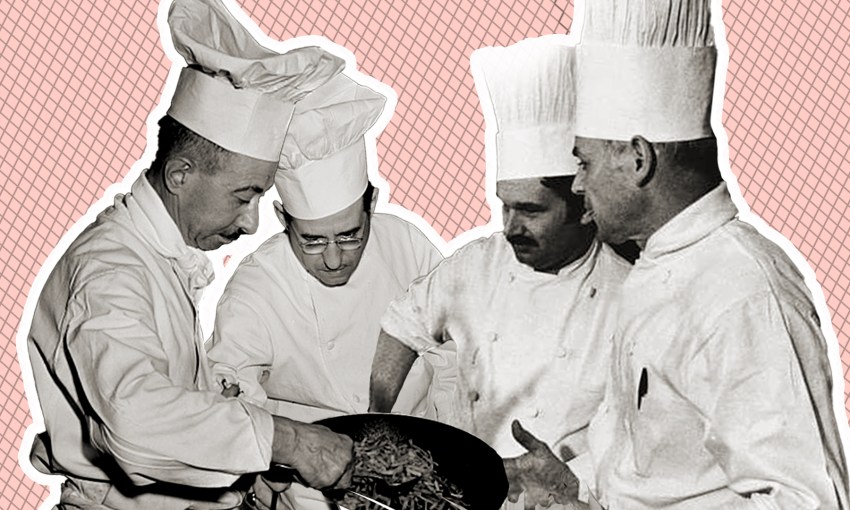The hospitality staffing crisis is a multifaceted problem, and restaurants are working hard to retain the staff they have – including hosting guest chef events to provide an engaging and educational environment for their workers.
Send in the chefs
Guest chef events once seemed like a rare occurrence in Adelaide.
They would happen with increasing frequency around the time of Tasting Australia – when chefs from around the world would, for one or two nights only, pop up in Adelaide kitchens.
But for the most part, restaurants across the city are expected to offer mostly the same experience night after night.
More recently, though, barely a week goes by without some form of interkitchenary chef-swapping.
New here? Sign up to receive the latest happenings from around our city, sent every Thursday morning.
In June, Pirie Street restaurant Soi 38 brought a Thai-influenced menu to Leigh Street Wine Room, and a month later the bar welcomed Michael Ryan of Victoria’s Provenance. In August, Goodwood drink-slingers Good Gilbert will stop by, who themselves are not shy of a collaboration, having hosted Secret Pizza Club on a recent Sunday.
At Magill Estate Kitchen and Restaurant, Scott Huggins, the venue’s long-running chef, is celebrating his recent turn as sole director of the business by running the Housewarming Series, during which he’ll invite 12 chefs into his kitchen over the course of 12 months.
Over at hyped Norwood restaurant Arkhé, founding chef and owner Jake Kellie was joined by Melbourne’s Chin Chin back in April, and he’ll host his long-time mentor, chef Scott Pickett, in November for Arkhé’s first birthday.
Jake himself popped up at Anchovy Bandit recently, as part of that restaurant’s Bandit Chef Series, which has been running since Tasting Australia 2021. The series has seen Lachlan Colwill, Emma McCaskill and Tom Tilbury also plate up for the patrons of Prospect.
This is not an exhaustive list.
It’s a sign of the health of the local industry and strength of the community that so much collaboration occurs. And according to the chefs and business owners CityMag has spoken to, these events are successful in drawing Adelaide’s dining set out into venues, wallets open and appetites whetted.
It may come as a surprise to diners, though, that, in many respects, these events are not designed for them.

Magill Estate’s Housewarming Series serves a few ends for Scott, the first being social. “Keeping relationships alive and spending time with good mates of mine in the industry,” he says.
His first guest is Jake Nicolson, executive chef of the Ghanem Group, who Scott met two decades ago while they were both working in Melbourne. The Housewarming event “gives us time to hang out as professionals and have a conversation in our own environment, share some ideas and collaborate,” he says.
There are also marketing aims – to “build some momentum” and “some talking points” for the restaurant since coming under Scott’s full control – but bringing another chef’s perspective into the kitchen is also about providing “opportunities for the team to learn and be inspired by other chefs”, he says.
“It’s exciting for young cooks and young front-of-house to see something come up, something new and something to look forward to, and it changes the day-in, day-out, being exposed to new things and new experiences, so it does [help with staff retention], for sure.”

Scott Huggins
The hospitality industry has not fared well in the era of The Great Resignation. From the opening moments of Australia’s pandemic response, the industry’s workers were shown to be expendable – or ‘non-essential’, in the parlance of the time – in the eyes of state and federal governments. Many workers, understandably, moved into more stable industries.
Those who did stay on realised, by virtue of industry-wide shutdown, there’s life to be had outside the kitchen, and perhaps work-life balance is not such a bad thing to strive for. This, too, either led to an exit from the industry, or instigated a search for new jobs with better working conditions.
The result of all this reckoning (and a couple of other factors) is the much-discussed hospitality staffing crisis, a phenomenon from which even the most popular Adelaide restaurants are not immune. Staffing is not a new problem, says Scott, but “it’s probably the worst it’s been”.
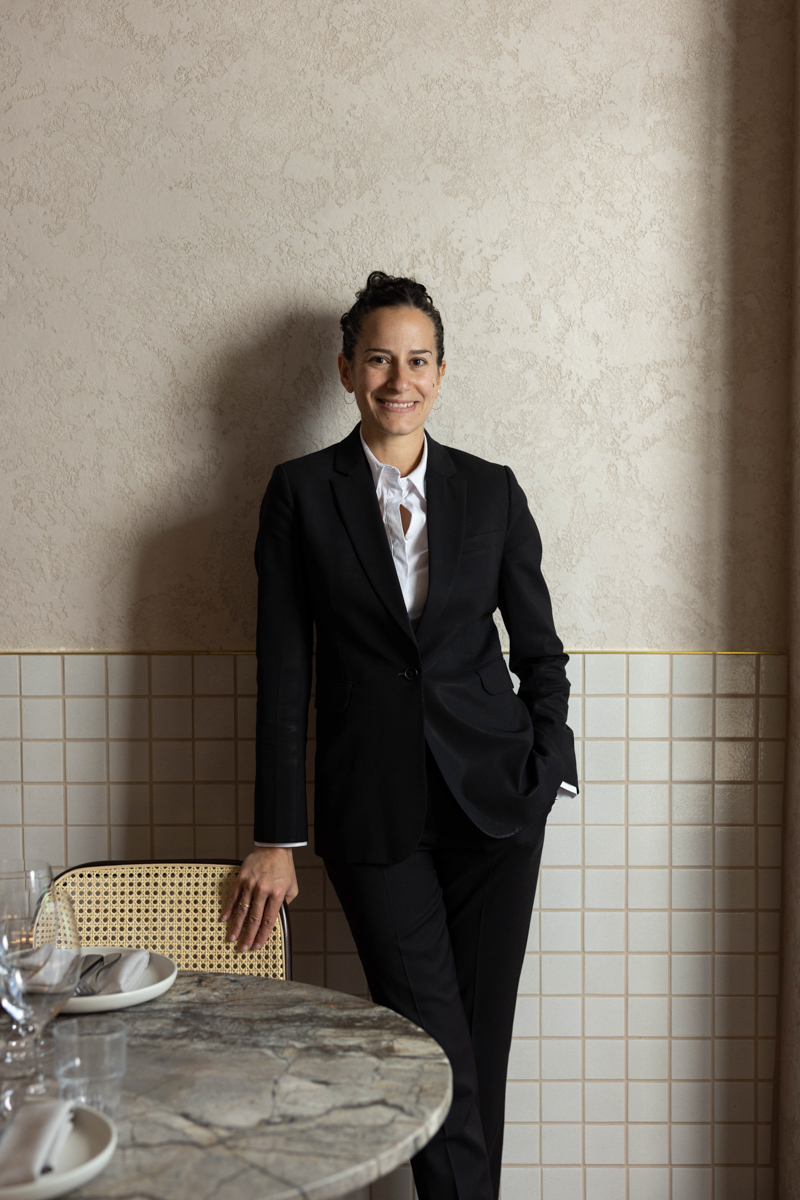
Meira Harel
General manager of Jay Patel’s group of restaurants, currently consisting of Leigh Street Wine Room, Press* Food and Wine and Peel St Restaurant, Meira Harel, agrees.
“It’s an employee’s market,” she says. “It’s pretty much at every level. Competition is really, really hard.”
As the industry continues its COVID recovery, levels of patronage are beginning to look comparable to pre-pandemic times. Staffing is one of the last remaining barriers to full trade.
“We don’t want to cap our covers because we don’t have enough [staff],” Meira says. “I think it’s now at a point where many of us are thinking really, really hard, out of the box. We’re all willing to teach, and now it’s just a matter of opening the doors to whoever wants to come and work.”
There are many ways businesses are striving to be seen as an employer of choice in this “employee’s market” – such as relocation packages for interstate workers and contracts stipulating hours amenable to a family and/or social life. They also promise professional development opportunities – which sometimes look a lot like guest chef events.
“For us, training is a huge part of what we do, and training has many different shapes and forms,” Meira says. “It could be the chef series, for example, outsourcing some skills to come and share with the team; it could be our daily or weekly trainings in-house; it could be anything from taking the chefs out for a lunch so they can try new flavours, and we can talk about it and we can learn from each other. Constantly seeking inspiration.”
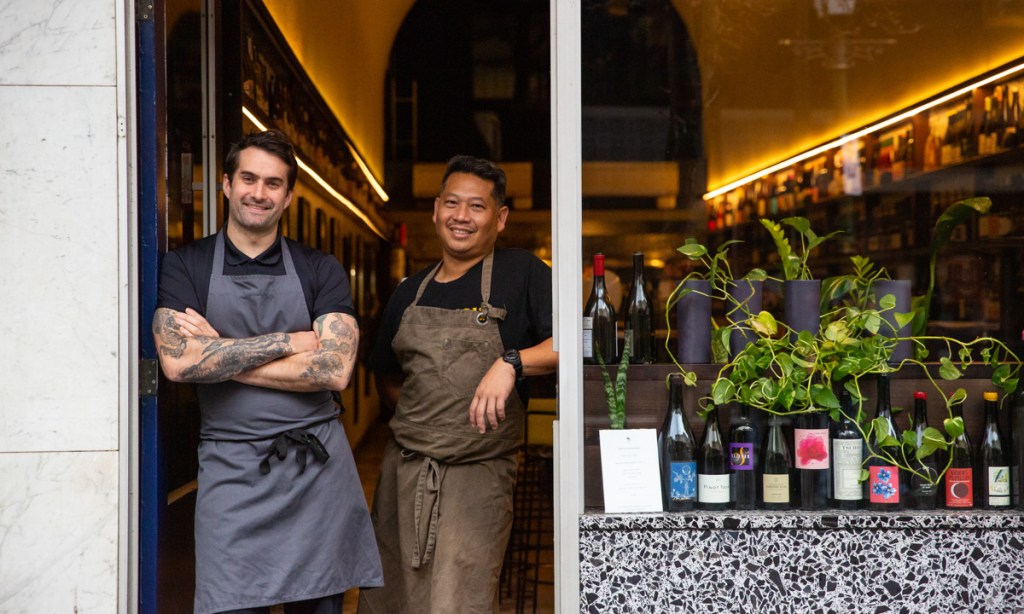
Leigh Street Wine Room’s Peter Orr and Soi 38’s Terry Intarakhamhaeng
Jake Kellie recalls the awe-inspiring effect of working alongside talented and well-known chefs. Back in his first year working at Burnt Ends in Singapore, the restaurant’s founder, Dave Pynt, launched event series 12 Months, 12 Chefs, which saw Igni, Ho Lee Fook, Ester and Coombeshead Farms, among others, appear at the eatery.
“I started work three days before it, and… the list of chefs was awesome,” Jake says. “Having someone different like them in the first 12 months, when I was in this brand-new restaurant, I was a kid in a candy shop, really.
“I was learning so much, how people were cooking, when they would come in, and obviously learning the craft of what Dave was doing there as well, so I was very, very lucky to be in that moment.”
Arkhé is not yet a year old, and its kitchen has been set up on hard mode – not a gas burner or electric cooktop on site, with everything cooked over charcoal flames – so Jake’s team are not for want of a professionally challenging work environment. But he did see, during the Chin Chin pop-up, outside influence bringing new perspectives to his chefs.
“When Benji (Cooper, executive chef of Chin Chin) came here, he did this mushroom larb dish, and we’ve done a bit of a spin-off of that and created that into one of our own dishes as well,” Jake says.
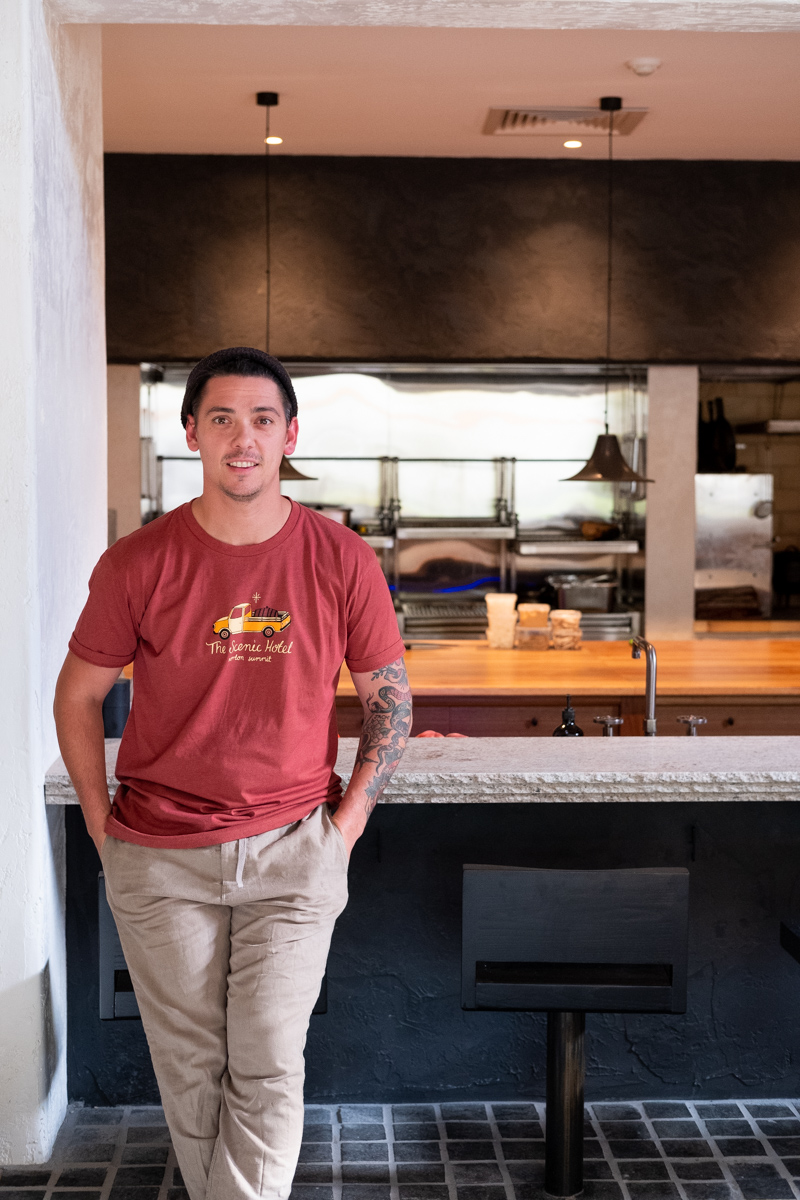
Jake Kellie
At Anchovy Bandit, founder Alex Bennett says he can see executive chef Shane Wilson reconsidering the restaurant’s menu each time they welcome in a guest chef.
“I really love seeing the creativity of Shane, especially, come out in [the events], because he gets to work with people from his… fine-dining background,” Alex says. “And I know the menu will get an overview because he’s been thinking about the menu leading up to the event.”
Bringing high-calibre chefs into Anchovy Bandit also changes the way Alex’s staff see their workplace.
“That level of pride and excitement definitely has people looking to refine what they do on a daily [basis],” Alex says.
“Emma, Tom, Jake, Lach, they all come from a fine-dining background, and then us being a fairly accessible, casual eatery, I think our staff look to what we can do better, or a little bit more refined.
“I think that our team’s super proud of what [the restaurant’s] doing, and when these events come on they double down and take out of it what they can.”
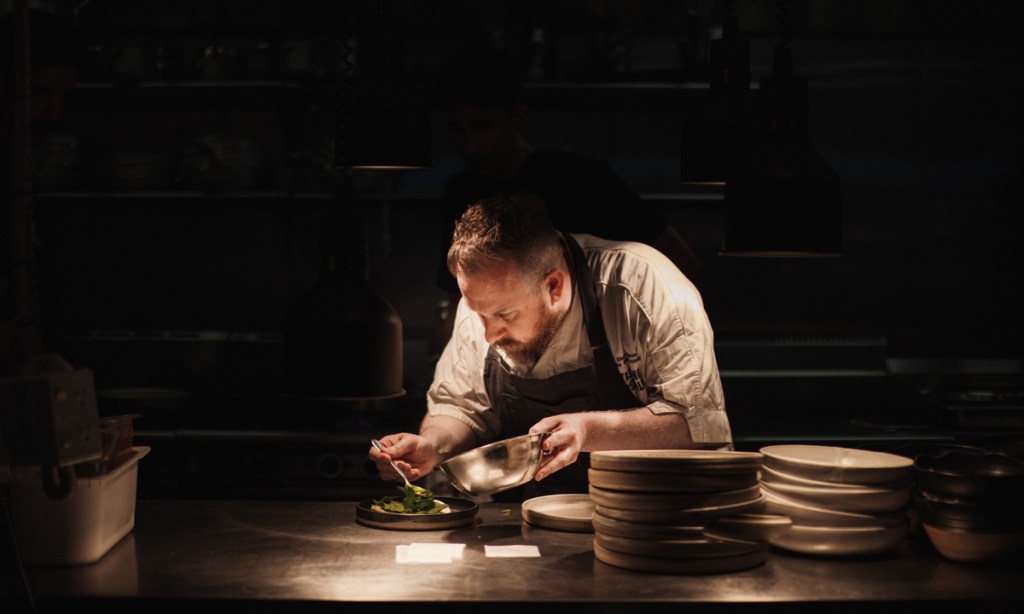
Shane Wilson
Like Jake, Scott Huggins also had a particularly affecting visit from a guest chef while he was running Iggy’s in Singapore. Dan Hunter, now the founder and owner of Brae in Victoria, was visiting from his then-posting as head chef of the Royal Mail.
“I was almost in awe of this chef: ‘Oh my god, this guy is just so good. So good’,” Scott laughs. “To the point where I think I lasted another two years at Iggy’s and I ended up leaving and coming back [to Australia] and working with Dan.
“It impacted me in a big way, and in some aspects curved my career.”
Scott will travel to Bali soon for a pop-up at the restaurant Mason, with some of his team coming along for the trip.
“For the young cooks that love to cook and love to learn and to be exposed to amazing opportunities, it’s phenomenal,” Scott says. “And I know that as a cook myself, and being in kitchens where chefs have come and cooked in my kitchen, it’s such an eye-opener.”
Even inspiring a staff member to defect to another restaurant, as he did, wouldn’t be such a bad thing – “Except for my senior staff,” Scott laughs.
“I would always encourage my chefs to go and learn,” he continues. “If they’ve ever got to the position where they’re a little bit stagnant or they’re not learning, and I’ve offered up what I can offer… and they’ve met and built a relationship with a chef coming through and they can then go off and further their career with them, I think that’s just an amazing opportunity.
“At the end of the day, I’ve done my job well then, if I can get my chefs to proceed to another restaurant of good calibre with a relationship and keep learning.”
Learning opportunities are an explicit goal of Leigh Street Wine Room’s Good Time Sundays series.
“We try and select people who we know will be generous with their knowledge and their passion, and when that’s the case it’s such magic in the kitchen for the guys,” Meira says.
But that’s not the only aim.
“The final thing, which is not less important, is just to have a good time, you know?” Meira says. “And for us to keep ourselves fresh and involved with the community and what happens in the community – in Adelaide or outside of Adelaide. But just to stay connected and up to date, and have a good time and enjoy it.”
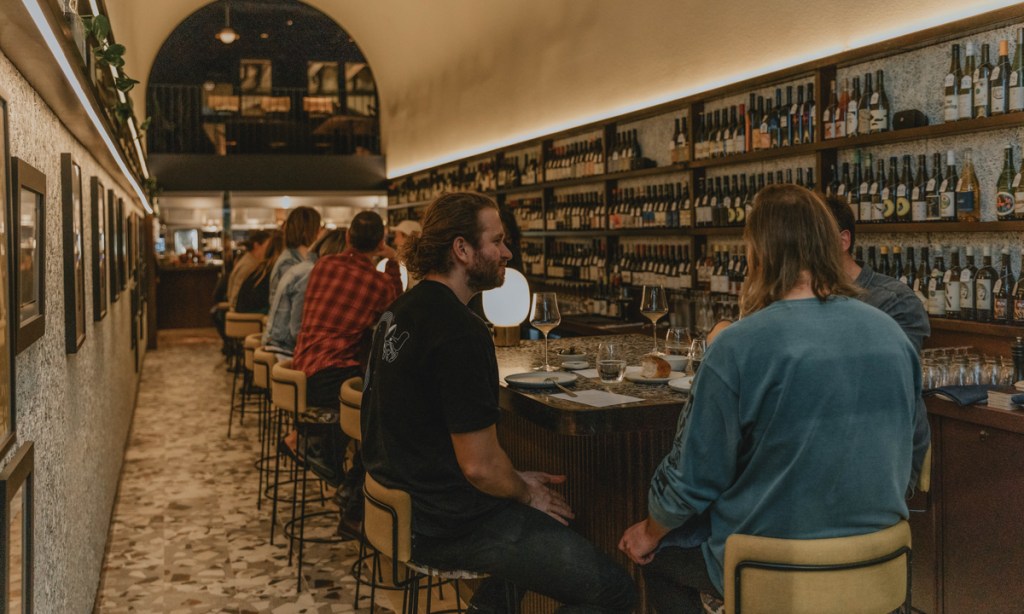
Leigh Street Wine Room. This image: Lewis Potter
While these events may go some way to keep up-and-coming chefs engaged in their craft, that alone will not stem the flow of workers out of restaurants.
Peter Orr, head chef at Leigh Street Wine Room, noticed a different attitude towards work-life balance in the Adelaide industry, compared to what he’d experienced working overseas.
“In Europe especially, a lot of people don’t want to work hospitality anymore,” he says.
“And I get it, there’s a lot of downsides to working in this industry. I certainly think Australia is one of the leaders in changing that, and paying overtime, having fixed contracts, closing dinner shifts to make it easier for their staff. It’s all things that I think are going to get people back into the kitchen and back into restaurants.
“I don’t know why in the past… it was just ok to work five, six doubles a week. It was just the way it was done, and I don’t know where that culture started from, but I definitely think it’s one of the reasons hospitality’s struggling.”
For Jake, who returned to Australia from Singapore in 2020, down-shifting in pace took some getting used to.
“It’s definitely something that’s very visible here, for sure, in Adelaide, that people love having that balance of life, where it’s not just all about work,” he says.
“[In] Sydney or Melbourne, or even Singapore, it was just fuckin’ go, go, go.
“Obviously now, having my son, a baby, it has to be that middle ground, even for myself. I can’t be here 70, 80 hours a week, because that doesn’t help Ena (Vujcic, Jake’s partner) or Henry (Jake and Ena’s son) for that fact as well. So I’m going through that process at the moment.
“It’s taken me a little bit longer than expected. I’m getting there.”
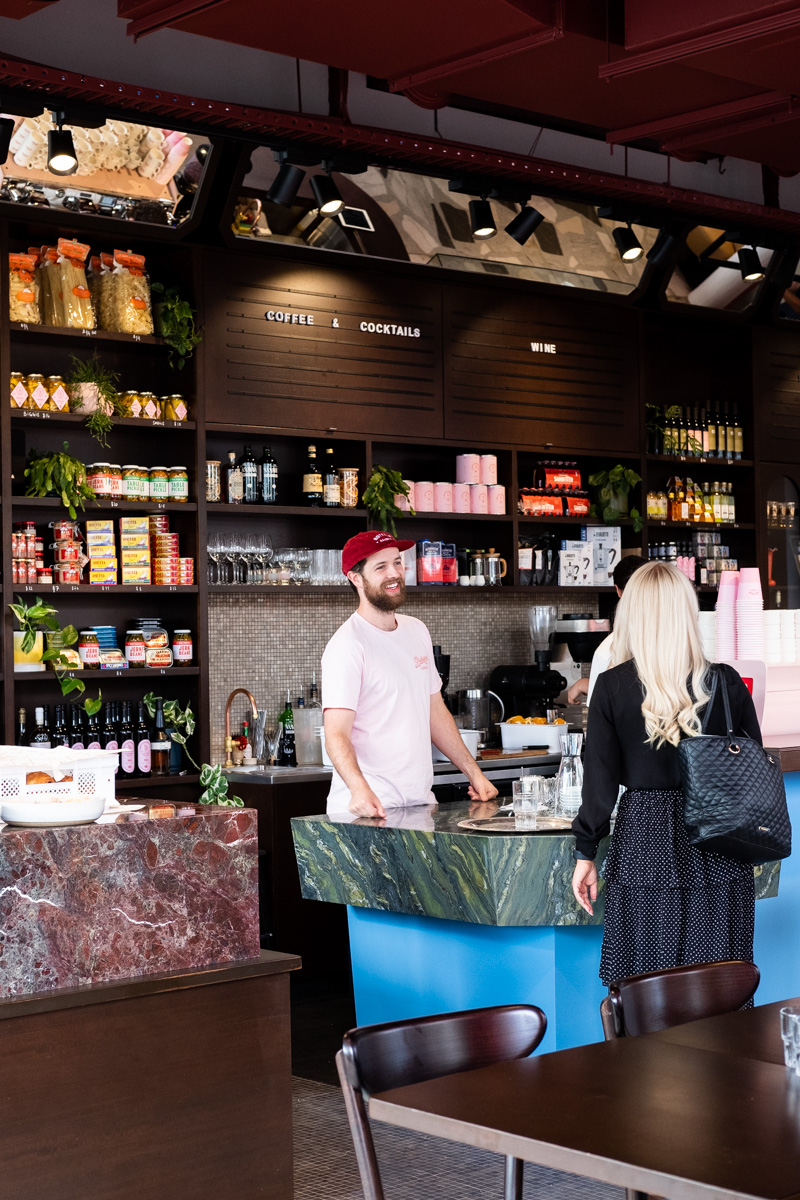
Alex Bennett at Bottega Bandito
For Alex and the leadership team within the growing Big Easy Group – which, in addition to Anchovy Bandit, also runs NOLA, The Stag, Yiasou George, Bottega Bandito, Bowden Brewing and Masa, and the soon-to-open Bandit Pizza & Wine – they’ve reached a size where they’ve recognised a need to contract an external HR company, and they’re in the process of implementing wellness concepts into their businesses.
“We’re putting a massive emphasis on staff wellness and… staff education, so that we’re able to, ideally, retain as many people as possible,” Alex says.
Part of this is managing the amount of work asked of staff on a weekly basis, by “trying to reduce overtime hours that staff were required to work,” Alex says.
But this hasn’t been enough.
“People were more well-rested, and we were able to provide work-life balance to people at their discretion,” Alex says, “but we didn’t necessarily notice that people who were working less were more equipped to navigate life.
“We’re looking at other ways that we can give the resources to the team and build out avenues where people can seek help if they need it, or build out avenues where we can reward staff if they’re doing a really good job.
“But we’re in R&D phase… We really want to start looking at ways where we can give more and more.”

Bottega Bandito, part of the Big Easy family
For Jake, the process of building Arkhé included consciously developing workplace culture.
“I want this restaurant to have an amazing culture, we’re like family and we’ll do anything for each other,” he says. “When everyone’s on board and everyone’s got each other’s back, it just makes your life 10 times easier, because there’s so much more passion and drive for the venue. You’re not the only leader.”
Similarly, Scott, in his capacity now as not only executive chef but business owner, is placing renewed emphasis on workplace culture.
“I’m new running my own business. I’m not just going to throw money against the wall, but I think the idea I’ve got in my head, and the idea my senior leaders have is there’s got to be a certain level of investment back into our staff,” Scott says.
“If that’s taking them to staff drinks on a Sunday one month, or inviting them to my house – which I’ve done already, I’ve invited them to my house and had a few lamb shoulders cooked over the barbecue, and some wine that’s provided, but everyone feels involved in that situation – I think it goes a fucking long way.”
The proof of Scott’s efforts, he says, is in the way it’s been built upon by his team.
“[They] organised a go-karting trip, which they paid for themselves, which they all engaged in themselves,” Scott says.
“This is the leaders, I suppose, working on that engagement, where they all got together as a team, they all went go-karting, and they had the grand prix and the cup and all of this sort of stuff. That’s culture right there, and that’s what we’re trying to build.”
The fix for the hospitality staffing crisis will be multifaceted, encompassing the full return of international students to South Australia, and, maybe, if intelligent public health measures ever allow, reduced time in quarantine for workers who test positive. These are factors mostly under the control of government.
As for the industry’s own efforts to retain its workers, like the many guest chefs bringing their influence to kitchen teams across the city, for the Adelaide dining public, it’s a good excuse for a night out.



